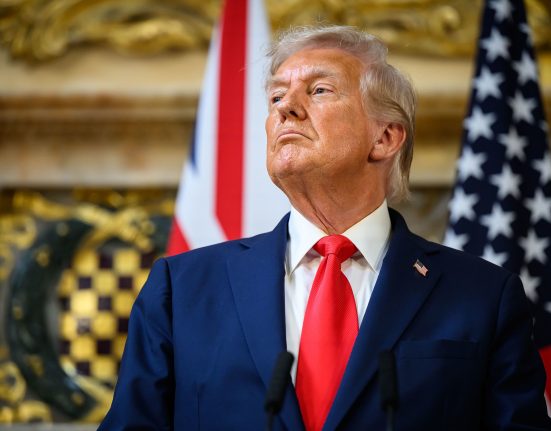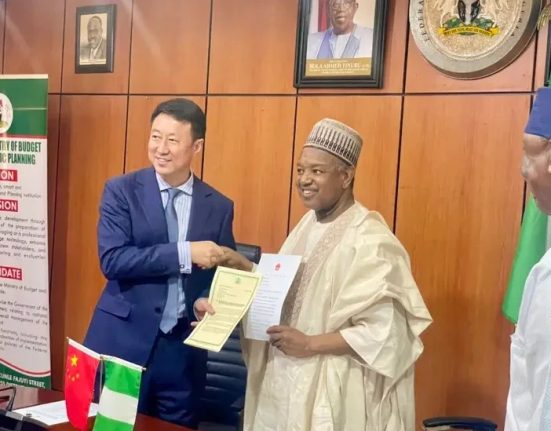Corruption in Nigerian politics is not just a headline, it is a reality that touches every citizen and costs Nigeria an estimated $18 billion lost to corruption each year. Few realise how these hidden deals quietly undermine hospitals, schools, even basic public trust. Yet here is the twist most miss. The most powerful solution may not be a sweeping crackdown from the top, but rather a wave of change sparked by ordinary communities themselves.
Table of Contents
- Understanding Corruption In Nigerian Politics
- Major Causes And Key Examples In Recent Years
- How Corruption Impacts Nigerian Society And Economy
- Strategies And Community Roles In Combating Corruption
Quick Summary
| Takeaway | Explanation |
|---|---|
| Political Corruption as a Systemic Issue | Corruption in Nigerian politics is ingrained in the governance structure, driven by a mindset that views political positions as avenues for personal gain, necessitating comprehensive reforms to address the root causes. |
| Weak Institutional Frameworks | Ineffective anti-corruption mechanisms, lack of judicial independence, and complex bureaucratic processes allow corruption to flourish, highlighting the need for robust accountability measures. |
| Cultural and Social Consequences | Beyond economic impact, corruption undermines societal values, erodes public trust, and impairs educational integrity, signalling the urgency for cultural transformations alongside legal reforms. |
| Community Engagement and Empowerment | Active participation from citizens is crucial; promoting ethics education and civic engagement can help reshape societal norms and combat the culture of corruption. |
| Technological Solutions for Transparency | Leveraging digital technologies like blockchain can enhance transparency and accountability in governance, providing innovative avenues for tracking financial transactions and reporting misconduct. |
Understanding Corruption in Nigerian Politics

Corruption in Nigerian politics represents a systemic challenge that has deeply penetrated the nation’s governance structures, undermining democratic processes and economic development. The pervasive nature of this issue extends far beyond isolated incidents, creating a complex web of institutional dysfunction that impacts every level of political engagement.
The Roots of Political Corruption
Political offices in Nigeria have historically been perceived as personal wealth accumulation opportunities rather than public service platforms. Research from political governance studies reveals that politicians frequently view political positions as strategic mechanisms for personal enrichment. This fundamental mindset drives a range of corrupt practices, including vote buying, electoral fraud, and systematic nepotism.
The influence of political “godfathers” plays a critical role in perpetuating corrupt systems. These powerful political mentors create intricate networks of patronage where politicians feel compelled to repay their benefactors through illicit financial transactions and resource misallocation. Governance analysis from institutional research demonstrates how these patronage networks create self-sustaining cycles of corruption that are challenging to dismantle.
Institutional Weakness and Accountability Challenges
Weak institutional frameworks contribute significantly to the persistence of corruption in Nigerian politics. The absence of robust accountability mechanisms allows corrupt practices to flourish unchecked. Transparency International reports highlight that inadequate legal enforcement and limited consequences for corrupt activities create an environment where unethical behavior becomes normalized.
Key systemic vulnerabilities include:
- Ineffective Anti-Corruption Mechanisms: Existing legal frameworks are often circumvented or deliberately weakened.
- Limited Judicial Independence: Political interference compromises potential prosecutorial actions.
- Complex Bureaucratic Processes: Complicated administrative procedures create opportunities for bribery and manipulation.
Moreover, the economic implications of widespread political corruption extend beyond immediate financial losses. These practices erode public trust, discourage foreign investment, and perpetuate cycles of poverty by diverting resources away from critical national development initiatives.
Cultural and Structural Dimensions
Understanding corruption in Nigerian politics requires acknowledging both cultural and structural dimensions. The problem is not merely about individual moral failings but represents a complex interplay of historical, social, and institutional factors. Colonial legacies, ethnic dynamics, and post-independence governance challenges have all contributed to creating an environment where corrupt practices can thrive.
Addressing this multifaceted challenge demands comprehensive approaches that go beyond punitive measures. Sustainable solutions must focus on institutional reform, cultural transformation, and creating genuine accountability mechanisms that restore public confidence in political processes.
As we reflect on these profound challenges, the words of the Prophet Muhammad (peace be upon him) resonate deeply: “Whoever sees an evil, let him change it with his hand; and if he is not able to do so, then with his tongue; and if he is not able to do so, then with his heart.”
Major Causes and Key Examples in Recent Years

The landscape of corruption in Nigerian politics has been marked by numerous high-profile cases that expose the deep-rooted systemic challenges facing the nation. Recent years have revealed intricate networks of illicit activities that undermine national development and erode public trust in governance institutions.
Structural Enablers of Corruption
Multiple factors contribute to the persistent corruption in Nigerian political systems. Governance research from the African Development Bank identifies several key structural enablers that create fertile ground for corrupt practices:
- Weak Institutional Oversight: Government agencies lack robust mechanisms for monitoring and preventing corrupt activities.
- Complex Bureaucratic Processes: Complicated administrative procedures create opportunities for bribery and manipulation.
- Limited Transparency: Insufficient public access to government financial records and decision-making processes.
Below is a table summarising the main structural enablers of corruption as outlined above:
| Structural Enabler | Description |
|---|---|
| Weak Institutional Oversight | Lack of proper monitoring systems in government agencies |
| Complex Bureaucratic Processes | Multiple layers and complicated procedures creating opportunities for bribery |
| Limited Transparency | Poor access by the public to financial records and decision-making processes |
Landmark Corruption Cases
Recent years have witnessed several notable corruption scandals that highlight the depth of the problem. The OPL 245 bribery affair stands out as a particularly egregious example of high-level corruption. This case involved a $1.1 billion oil block transaction where government officials allegedly received massive bribes, demonstrating the scale of potential financial misconduct in the Nigerian petroleum sector.
Transparency International’s analysis reveals that between 2010 and 2020, numerous public officials were implicated in significant corruption scandals. These cases span various sectors, including:
- Petroleum Sector: Misappropriation of oil revenue and questionable licensing agreements
- Government Procurement: Inflated contract values and kickback schemes
- Electoral Processes: Vote buying and misuse of campaign funds
For a clearer understanding, the following table illustrates key sectors affected by recent corruption scandals and their typical forms:
| Sector | Typical Form of Corruption | Notable Example |
|---|---|---|
| Petroleum | Misappropriation, Bribery in Licensing Agreements | OPL 245 Bribery Affair |
| Government Procurement | Inflated Contract Values, Kickback Schemes | Various 2010-2020 Scandals |
| Electoral Processes | Vote Buying, Misuse of Campaign Funds | Multiple Election Cycles |
Economic and Social Consequences
The impact of political corruption extends far beyond immediate financial losses. Economic research from the World Bank demonstrates that corrupt practices significantly impede national development. These activities create multiple negative consequences:
- Reduced foreign investment
- Decreased economic growth
- Increased poverty levels
- Undermined public service delivery
- Erosion of citizen trust in government institutions
Moreover, corruption creates a vicious cycle that perpetuates economic inequality. Resources meant for public infrastructure, education, and healthcare are diverted, directly impacting the most vulnerable populations.
Reflecting on these challenges, we are reminded of the Islamic principle of accountability. The Quran emphasizes the importance of trustworthiness and warns against corruption, stating: “And do not consume one another’s wealth unjustly or send it [in bribery] to the rulers that you may consume a portion of the people’s wealth unlawfully while you know [it is unlawful]” (Surah Al-Baqarah, 2:188).
Addressing corruption requires a comprehensive approach that combines strong legal frameworks, robust institutional reforms, and a cultural shift towards ethical governance. It demands collective effort from government institutions, civil society, and individual citizens committed to creating a more transparent and just political system.
How Corruption Impacts Nigerian Society and Economy
Corruption in Nigeria represents a multifaceted challenge that extends far beyond financial misconduct, profoundly impacting societal structures, economic development, and national potential. Its pervasive nature creates a complex ecosystem of systemic challenges that undermine progress and erode public trust.
Economic Deterioration and Investment Challenges
Research from economic governance studies reveals that corruption systematically depletes national revenue and creates significant barriers to economic growth. Foreign investors become hesitant to engage with systems perceived as fundamentally unreliable, leading to reduced capital inflow and stunted economic development.
The economic consequences manifest through multiple channels:
- Reduced Foreign Direct Investment: Potential investors perceive high-risk environments
- Capital Flight: Wealthy individuals and corporations move resources offshore
- Inefficient Resource Allocation: Public funds are diverted from critical infrastructure projects
Social Fabric and Educational Undermining
Educational research demonstrates that corruption significantly undermines societal development, particularly within educational institutions. When academic merit becomes secondary to financial transactions, the entire social mobility mechanism becomes compromised.
Key social impacts include:
- Decreased Educational Quality: Merit-based advancements are replaced by transactional processes
- Reduced Human Capital Development: Talented individuals are marginalized
- Erosion of Institutional Credibility: Public trust in government agencies diminishes
Psychological and Cultural Implications
Beyond tangible economic metrics, corruption creates profound psychological consequences. Sociological studies from African governance research indicate that prolonged exposure to systemic corruption generates a culture of normalized unethical behavior.
This normalization process leads to:
- Generational Ethical Degradation: Younger generations perceive corruption as standard practice
- Decreased Social Cohesion: Community trust becomes progressively fragmented
- Individual Moral Compromise: Personal integrity becomes increasingly flexible
Reflecting on these challenges, the Quranic guidance becomes particularly relevant: “Indeed, Allah commands you to render trusts to whom they are due and when you judge between people to judge with justice” (Surah An-Nisa, 4:58).
Addressing corruption requires a holistic approach that combines legal reforms, cultural transformation, and individual commitment to ethical governance. It demands collective responsibility from citizens, institutions, and leadership to reconstruct a more transparent and just societal framework.
Strategies and Community Roles in Combating Corruption
Combating corruption in Nigeria requires a multifaceted approach that integrates institutional reforms, community engagement, and individual ethical transformation. The complexity of this challenge demands collaborative strategies that address systemic issues while empowering citizens to become active agents of change.
Institutional and Policy Frameworks
The National Anti-Corruption Strategy (NACS) 2022-2026 provides a comprehensive roadmap for addressing corruption through strategic policy interventions. This framework emphasizes the critical role of public engagement and systematic institutional reforms in creating sustainable anti-corruption mechanisms.
Key strategic approaches include:
- Legislative Strengthening: Developing robust legal frameworks with clear accountability mechanisms
- Institutional Independence: Ensuring investigative agencies operate free from political interference
- Transparent Reporting Systems: Creating accessible platforms for citizens to report corruption
Community and Individual Empowerment
Behavioral research from the Nigerian Institute of Social and Economic Research highlights the importance of understanding and transforming individual and collective behaviors. Community-driven initiatives play a crucial role in challenging and reshaping societal norms that enable corrupt practices.
Effective community strategies encompass:
- Ethics Education: Integrating anti-corruption values in educational curricula
- Public Awareness Campaigns: Utilizing media and grassroots platforms to highlight corruption’s societal impact
- Civic Engagement Platforms: Creating spaces for citizens to participate in governance accountability
Technology and Transparency Mechanisms
Digital technologies offer innovative approaches to combating corruption by increasing transparency and reducing human intermediation. Digital governance research demonstrates the potential of technological solutions in creating more accountable systems.
Technological interventions include:
- Digital Financial Tracking: Implementing blockchain and open-source financial monitoring systems
- Whistleblower Protection Platforms: Developing secure digital reporting mechanisms
- Open Government Data Initiatives: Providing public access to government financial records
Reflecting on these strategies, we are reminded of the Prophetic guidance: “The best among you are those who have the best manners and character” (Bukhari).
Ultimately, combating corruption requires a holistic approach that recognizes individual responsibility alongside institutional transformation. It demands continuous commitment, ethical education, and a collective vision of creating a more just and transparent society.
Frequently Asked Questions
What are the main causes of corruption in Nigerian politics?
Corruption in Nigerian politics is driven by systemic issues such as weak institutional frameworks, a culture of patronage, and historical factors that prioritise personal gain over public service.
How does corruption affect Nigeria’s economy?
Corruption significantly hampers Nigeria’s economic growth by deterring foreign investment, diverting public funds, and perpetuating poverty, leading to an inefficient allocation of resources.
What are some key examples of corruption scandals in Nigeria?
Notable corruption scandals in Nigeria include the OPL 245 bribery affair, where government officials allegedly received substantial bribes, highlighting extensive corruption in the petroleum sector and beyond.
How can communities combat corruption?
Communities can combat corruption by promoting ethics education, engaging in public awareness campaigns, supporting transparency initiatives, and encouraging citizen participation in governance processes.
Take Action Against Corruption: Stay Informed, Stay Empowered
Corruption in Nigerian politics, as outlined in this article, reaches into every aspect of society—weak institutions, lost public trust, diminishing opportunities for honest citizens. If you feel frustrated by the constant cycle of headlines exposing new scandals or if you worry how corruption directly affects families, schools, and your own hopes for progress, you are not alone. The key to breaking this cycle is knowledge. Understanding both the trends and real impact of corruption arms you to demand better governance and make informed choices for your community.
Do not let the latest scandal go unnoticed. Equip yourself with timely updates, expert analysis, and ongoing investigative reports by visiting Kiin360.com. Here you can access breaking news, in-depth political commentary, and vital resources across politics, business, education, and more. Start changing the story—visit our latest updates and take the next step towards an informed, empowered future for all Nigerians.








Leave feedback about this